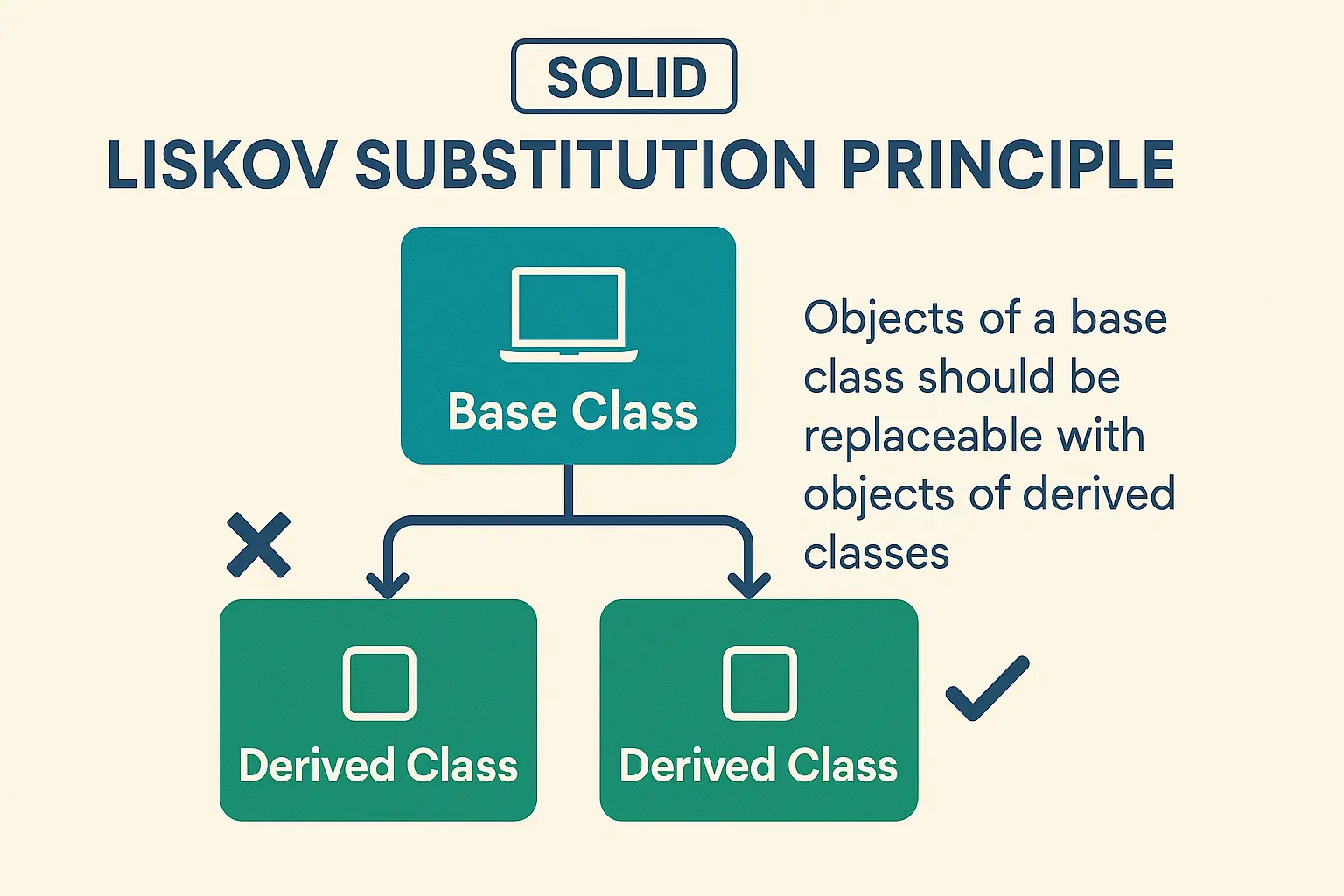SOLID Principles in Software Development - 3 Liskov

When we talk about the Liskov Substitution Principle, we’re basically saying that if a child class inherits from a parent class, it should be able to replace the parent without breaking anything. That is, any instance of a subclass should behave like its base class without altering the logic of the program. It sounds obvious, but in practice, many systems break because subclasses start doing weird or unexpected things.
Let’s say we’re building a REST API for a platform with different user types: User, Admin, Editor, etc. We create a base class User with a method view_dashboard(), and then extend that class for admins or editors. So far, so good. But if suddenly a subclass like GuestUser throws an exception when someone calls view_dashboard(), then we’re violating the Liskov principle.
Here’s an example in Python to make it clearer:
class User:
def view_dashboard(self):
return "Showing dashboard"
class GuestUser(User):
def view_dashboard(self):
raise PermissionError("Guest users can't view the dashboard")
Here, GuestUser inherits from User, but breaks the expected behavior: when calling view_dashboard() on a User, you expect it to always work—not to blow up with a PermissionError. That’s a clear violation of LSP. A better solution would be not to inherit from User if the expected behavior doesn’t apply.
We can fix this using composition or separating responsibilities with clearer interfaces:
class User:
def can_view_dashboard(self):
return True
def view_dashboard(self):
if self.can_view_dashboard():
return "Showing dashboard"
raise PermissionError("You don't have permission to view this")
class GuestUser(User):
def can_view_dashboard(self):
return False
This way, all objects respond to the same method, but behave consistently without breaking what the base class promises. Plus, this makes your REST API more predictable: any endpoint using User.view_dashboard() knows it will either show the dashboard or return a clear permission error—no surprises or broken subclasses.
The Liskov Substitution Principle helps us think more carefully about class hierarchies, be more honest with our abstractions, and above all, avoid cramming in behavior that doesn’t belong. It’s one of those rules that, once you start applying it, helps you write cleaner, more understandable, and easier-to-maintain code. And if you’re building APIs for third parties, your classes better behave like they claim to!
o/

Marco
Romero
Hi! I am a software developer with a solid development background and experience in various technical areas. I complement my technical skills with studies in teaching, which has enhanced my ability to communicate complex concepts clearly and effectively, as well as to collaborate in dynamic environments.
I have a proven track record in problem solving and incident management, applying a methodical and results-oriented approach. I quickly adapt to new technologies and methodologies, keeping up with industry trends to deliver innovative and efficient solutions.
- Name
- Phone
- Web
- Home
- Marco Antonio Romero Torrez
- +54 280 484 2576
- marcoromero.dev@gmail.com
- marcoromero.com.ar
- Puerto Madryn, Chubut - Argentina